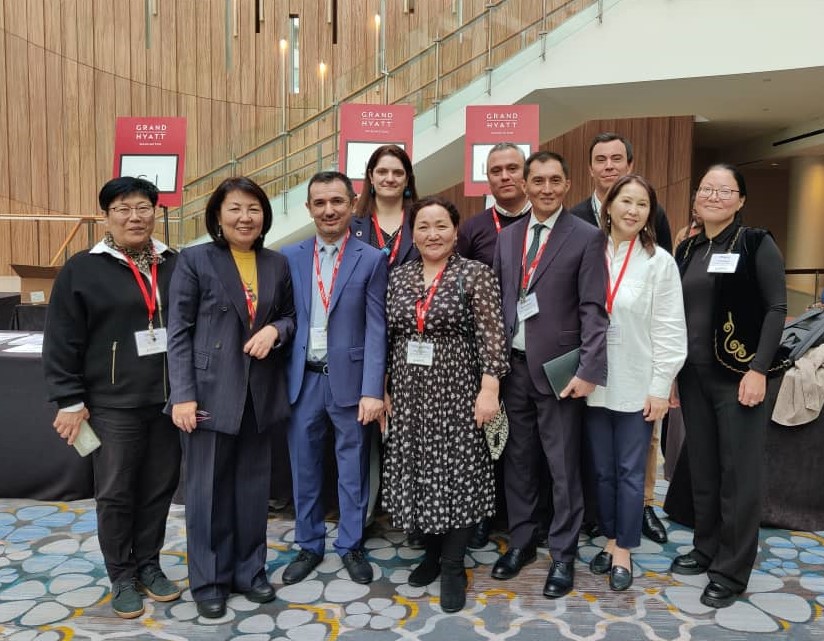I’ve recently returned from Washington DC, USA, where this year’s Comparative & International Education Society (CIES) conference took place. A huge gathering of over 3,000 education researchers, policymakers, and practitioners, the conference opened many valuable spaces for learning, (re)connecting, and sharing research and ideas.

As well as presenting UNESCO IESALC projects on virtual student mobility and the futures of higher education, I chaired the highlighted panel Educating for inclusion beyond the pandemic: Digitalization, distance education and the teaching profession in Central Asia.
The panel was convened by Taalim Forum, the Kyrgyzstan-based lead partner of a GPE KIX funded research project on distance education and innovation in Central Asia. In a packed room, the panel took up three key global education issues exposed by the pandemic: digitalization, distance education, and the teaching profession.
The first speaker is someone who has been with the project for some time, first as an advisory board member and subsequently in his capacity as the Minister of Education and Science of the Kyrgyz Republic. Ulanbek Mambetakunov gave a presentation on digital transformation in education, challenges and strategies for the teaching profession in the Kyrgyz Republic.
The research project leaders, Jyldyz Doolbekova and Almagul Osmonova, then presented on the framework of the research, focusing on policy changes on distance education across the three countries in the project (Kyrgyzstan, Mongolia and Tajikistan), the methodology, and the exciting plans for the next stage of research.
The following two presentations, presented by Abduvohid Safarov and Jovidsho Juraev of Anahita public foundation and Tungalagtuya Khuukenduu who leads the NGO Nomadic Nature Conservationto, focussed on the findings of extensive field research in Tajikistan and Mongolia respectively. The presenters discussed the expansion of distance education in schools during the pandemic and raised some of the challenges and opportunities that the past two years of experimentation have highlighted.
Last but certainly not least, Chinara Omurkulova from Taalim Forum presented on gender inequalities and their educational implications for girls and boys in Central Asia during COVID-19. This was a cross-cutting analysis based on the field research findings from all three countries.
This project was conceived at the height of the pandemic, in summer 2020, when the impact of Covid-19 was not only fresh but part of our daily reality in ways that are much different from today. Despite this – or perhaps because of it, given the topic of the research – this project has gone from strength to strength.
The panel at CIES 2023 generated excellent questions and comments from the engaged audience, and enthused project members as they prepare to roll out a large scale survey of students and teachers across the three countries.
Leave a comment